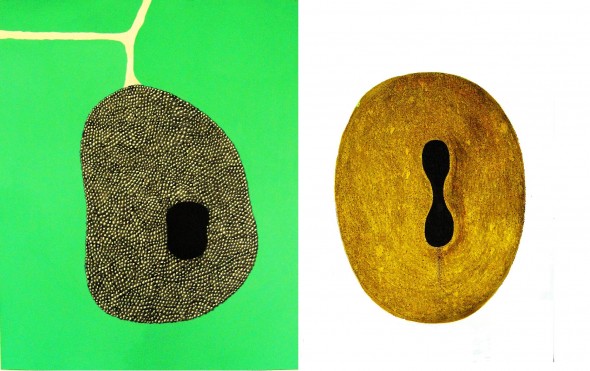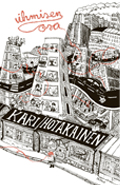Tag: novel
Leena Lander: Liekin lapset [Children of the flames]
23 June 2010 | Mini reviews, Reviews
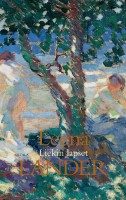 Liekin lapset
Liekin lapset
[Children of the flames]
Helsinki: Siltala, 2010. 419 p.
ISBN 978-952-231-022-1
€ 27.30, hardback
Novels by Leena Lander (born 1959) have been translated into more than 20 languages. Liekin lapset is a family saga, told in two parallel timelines. One is a portrait of a small coastal community in south-western Finland from the turn of the 20th century up to the end of the Finnish civil war in 1918 and the years following it. Life in the area is governed by a sawmill and a manor, socially dividing the community in two. Saida, Joel, Anders and Arvi grow up together, the future workers dreaming of socialism and the sons of the manor playing warlords. In the contemporary strand of the story, Sakari Salin, Saida’s grandson, begins researching his grandmother’s life. The documents reveal some rather remarkable events: here, the author defends the rights of those who were on the losing side in the civil war and creates a lively – as well as historically grounded – portrait of the times. The dialogues and characters in this novel work well, and the structure supports a complex system of psychosocial interconnections, in which the present finds an explanation in the past.
Literature international
7 May 2010 | In the news
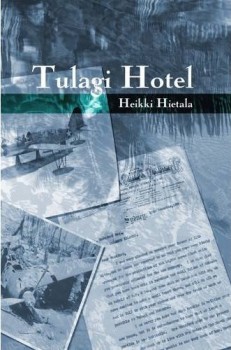 A novel set on the islands of the Pacific and Indian Oceans, Tulagi Hotel, was published by Dragon International Independent Arts (Diiarts) in London on 12 April. The writer is a native Finn, Heikki Hietala, who wrote his book in English.
A novel set on the islands of the Pacific and Indian Oceans, Tulagi Hotel, was published by Dragon International Independent Arts (Diiarts) in London on 12 April. The writer is a native Finn, Heikki Hietala, who wrote his book in English.
Hietala, a translator and lecturer at Haaga-Helia University of Applied Sciences in Helsinki, began writing his novel in 1996, and in 2008 a refined version was uploaded onto the HarperCollins website, Authonomy, where Tulagi Hotel rose to number 15 in the popularity ratings for novels – in a selection of some eight thousand. It is now available also in an electronic version for Kindle.
The story takes place in the years of the Second World War and after; a US Marine fighter pilot from the Midwest, Jack McGuire, settles down on the Solomon Islands and begins to run a hotel. The arrival of his wartime best friend’s widow, Kay Wheeler, disrupts his orderly civilian life.
We congratulate the author for his rare achievement – however, we’d like to point out a small error. Tulagi Hotel is advertised as ‘the first book written in English by a Finn to be published outside Finland’, this is not quite true, as Anselm Hollo, a native Finn, translator and poet living in Colorado, has been publishing poetry books in English in the UK and the US since the 1960s. (Here are samples of his poems:)
Prose prizes
7 May 2010 | In the news
This year’s Finnish Government Prizes for Literature and Translation have been awarded to, respectively, the writer and journalist (and former Editor-in-Chief of Books from Finland) Kristina Carlson (born 1949) and the translator Tarja Roinila (born 1964). The prizes, which are given on the recommendation of the Finnish National Council for Literature and are worth €15,000 each, were awarded at a ceremony in Helsinki on 4 May by the Minister of Culture and Sports, Stefan Wallin.
Carlson’s second novel, Herra Darwinin puutarhuri (‘Mr Darwin’s gardener’, Otava), published last autumn, is a taut, deep and rich story narrated by many voices, contrasting science and faith, solitude and community. ‘It is not often that a single work renews the novel form,’ remarked the jury. (We featured an interview with Carlson, as well as an extract from the novel here on the Books from Finland website last September.)
The translator Tarja Roinila has specialised in prose and poetry written in Spanish, French and German; her latest translations, of the linguistically complex novels of the Austrian author Thomas Bernhard, are extremely musical, the jury remarked.
On 4 May, which was celebrated in Finland as the Day of the Book and the Rose (this custom, which originally took place on St George’s Day, April 23, was born in Barcelona: originally men gave women roses, and received books in return), Kristina Carlson received the Kiitos kirjasta (‘Thanks for the book’) medal, awarded jointly by the Booksellers’ Association, the bookshop sales asistants’ association Libro and the Finnish Library Association.
Grim(m) stories?
30 April 2010 | Letter from the Editors
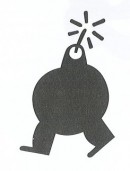 ‘There’s not been much wit and not much joy, there’s a lot of grimness out there.’
‘There’s not been much wit and not much joy, there’s a lot of grimness out there.’
This comment on new fiction could have been presented by anyone who’s been reading new Finnish novels or short stories. The commentator was, however, the 2010 British Orange Prize judge Daisy Goodwin, who in March complained about the miserabilist tendencies in new English-language women’s writing. More…
Green thoughts
Extracts from the novel Kuperat ja koverat (‘Convex and concave’, Otava, 2010)
I decided to go to the Museum of Fine Arts.
After paying for my entrance ticket, I climbed the wide staircase to the first floor. There all I saw were dull paintings, the same heroic seed-sowers and floor-sanders as everywhere else. Why were so many art museums nothing more than collections of frames? Always national heroes making their horses dance, mud-coloured grumblers and overblown historical scenes. There was not a single museum in which a grandfather would not be sitting on a wobbly stool peering over his broken spectacles, interrogating a young man about to set off on his travels, cheeks burning with enthusiasm, behind them the entire village, complete with ear trumpets and balls of wool. The painting’s eternal title would be ‘Interrogation’ and it would be covered with shiny varnish, so that in the end all you would be able to see would be your own face.
I climbed up to the next floor. All I really felt was a pressing need to run away. No Flemish conversation piece acquired in the Habsburg era was able to erase a growing anxiety related to love. More…
American Girl goes America
12 February 2010 | In the news
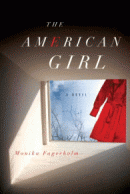 Monika Fagerholm’s novel Den amerikanska flickan has been published by the Other Press of New York.
Monika Fagerholm’s novel Den amerikanska flickan has been published by the Other Press of New York.
The American Girl was characterised by Publisher’s Weekly as ‘a hypnotic coming-of-age story that hinges on a dark but powerful bond between two Finnish girls growing up in the swamplands of outer Helsinki’. More…
And the winner is…
9 February 2010 | In the news
The Runeberg Prize for fiction, given this year for the twenty-fourth time, went to Kari Hotakainen (born 1957) for his novel Ihmisen osa (‘The human lot’, Siltala, 2009). The prize, worth €10,000, was awarded on 5 February – on the birthday of the poet J.L. Runeberg (1804–1877) – in the city of Porvoo.
The jury – representing the prize-founders, the Uusimaa newspaper, the city of Porvoo, both the Finnish and Finland-Swedish writers’ associations and as the Finnish Critics’ Association – chose the winner from a shortlist of seven books. ‘The picture of a fast-changing society that Hotakainen paints in his novel is not a comforting one, but neither is it hopeless…. chilling and perceptive, but not without sharp comedy’, the jury concluded.
Antti Hyry: Uuni [The stove]
22 January 2010 | Mini reviews, Reviews
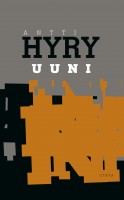 Uuni
Uuni
[The stove]
Helsinki: Otava, 2009. 400 p.
ISBN 978-951-1-23845-4
28 €, hardback
Many authors have inspired imitators, at least for a brief period, but few prove to be so original that they lend their name to an entire stylistic movement. Antti Hyry (born 1931), whose debut work was published in 1958, is a member of this most influential class of writers. His pared-down ‘Hyryesque’ sentences, which convey in a stark, crystal-clear manner only that which his characters think or observe, have been at the core of Finnish modernism for over half a century now. His latest novel, a tranquil, even meditative work, describes in minute detail – virtually brick by brick – how a man constructs a great wood-burning hearth in his house. Alongside the building work, Hyry provides minutely observed details of the natural surroundings and nearby people. Rich in content and brilliant in its simplicity, this novel was awarded the 2009 Finlandia Prize for fiction.
A day at the zoo
23 December 2009 | Children's books, Fiction
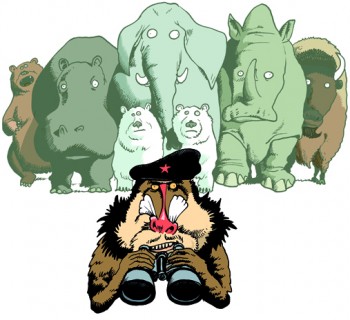
Extracts from the children’s book Zoo – eläimellinen tarina (‘Zoo – a bestial story’, WSOY, 2009, illustrated by Pertti Jarla)
The place: A zoo, once the property of the city, now privatised and accountable to corporate stockholders
The characters: The animals of the zoo, in particular Gandhi, a Sumatran tiger (false-teeth, poor vision, pacifist), Che, a male mandrill baboon (militant), and Mother Teresa, a hammer-headed bat (elderly); the zookeeper Sihvonen (stands up for the animals, recently fired); the new zoo director (whose main goal is to maximise profits); the shareholders’ committee (awaiting their earnings)
The action: after a demonstration in which all the animals played dead, the animals are staging a revolution to demand that Sihvonen be reinstated
![]()
The animals crowded into the foyer. The hallway was full of every kind of creature, with all of their skin, fur and feathers steaming in the warm indoor air. Che stood at the top of the the stairs, looked down at his troops, and gave the order in mime for everybody to be quiet.
‘Reconnaissance?’ he said, his voice subdued.
‘Ready!’ the leaf-tailed geckos announced.
‘Head in!’ Che commanded. More…
Monika Fagerholm: Glitterscenen [The Glitter Scene]
17 November 2009 | Mini reviews, Reviews
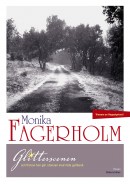 Glitterscenen
Glitterscenen
[The Glitter Scene]
Helsingfors: Söderströms, 2009. 407p.
ISBN 978-951-522-467-5
€29.90
Säihkenäyttämö
Finnish translation by Liisa Ryömä
Helsinki: Teos, 2009. 455 p.
ISBN 978-951-851-127-7
€29.90, hardback
In Glitterscenen Fagerholm reveals the shabby details of the murder mystery that was the essence of her celebrated Den amerikanska flickan, The American Girl (2006). In a sense, the two books are psychological thrillers, but they are also much more than that: the American girl’s death is a myth about destruction and creation – a narrative about love, death and glamour that attracts and seduces cohort after cohort of young women in the District, a place somewhere in Finland that is in the process of being transformed from the rural to the suburban. Like no other author, Fagerholm combines the advantages of plot-based realism with the deep psychological excavation of collective dreams and the secret layers of the unconscious. In the centre of the District there is a kiosk where the local priest’s daughter, fat May-Gun, presides over dirty magazines, sickly candy and magnificent dreams. Across the square, eyed by horny small-town greasers, walks young and blonde Suzette. The result is a deadly drama, propelled by grief and narcissism. The Glitter Scene is the goal of our dreams, but also a dangerous place of instant gratification and sudden death.
Tuomas Kyrö: 700 grammaa [700 grams]
12 November 2009 | Mini reviews, Reviews
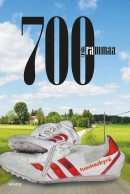 700 grammaa
700 grammaa
[700 grams]
Helsinki: WSOY, 2009. 379 p.
ISBN 978-951-0-35601-2
€ 30, hardback
The genre of the picaresque novel is doing well, and one of its foremost exponents in Finland is Tuomas Kyrö (born 1974). The plot of his ingenious first novel, Nahkatakki (‘Leather jacket’, 2001), revolved around a jacket that moves from one owner to another. His later novels maintain this comical tension, but with a deepening of themes and a more sober outlook. Liitto (‘Union’, 2005) portrayed people scarred by war, while Benjamin Kivi (2007, featured in Books from Finland 4/2007) retold Finland’s history in a light-hearted and anachronistic manner. 700 grammaa is a book about sports fever and family relationships, the exploration of love and the pursuit of dreams. The main character is a boy who at birth weighs only 700 grams, and whose father vows to perform a seven metre long-jump if his son survives. He does, and the father has to devote his life to this almost impossible sporting achievement This novel, with its fast-developing plot and varied narrative techniques, is a paean to the heroism latent in mediocrity.
Noah’s progeny
30 October 2009 | Fiction, Prose
Extracts from the novel Puupää (‘Blockhead’, Teos, 2009)
In these ‘shavings’ hewn from the block in constructing the storyline of his new novel, Juha Hurme offers us four unique glimpses into the Finnish psyche
The rune singer of Nokia
Three years ago I purchased a used mobile phone when its predecessor took an overdose of sea water and went mute on a rowing trip in a broken-down loaner of a fibreglass boat in a gale-force nor’wester. This three-year-old phone has been a thoroughly satisfactory implement and indispensable contact link. The power button got stuck a year ago, but the gadget is still fully operational with the aid of a match stick or something similar. It is my belief and hope that it will continue to fulfil the role of telephone for seven more years, because I prefer not to own, let alone purchase, anything that withstands fewer than ten years of use. More…
Teemu Kaskinen: Sinulle, yö [To you, the night]
29 October 2009 | Mini reviews, Reviews
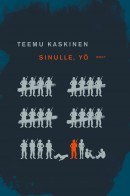 Sinulle, yö
Sinulle, yö
[To you, the night]
Helsinki: WSOY, 2009. 268 p.
ISBN 978-951-0-35599-2
€ 29, hardback
In Teemu Kaskinen’s debut novel, Finland is at war with Norway and its NATO ally the United States. Fierce battles rage in the winter darkness in Lapland, and Helsinki has become the stage for a contemporary war, which seems rather ridiculous – except for the fact that there are neighbouring countries currently at war with each other after having previously coexisted peacefully for ages, and it would be easy to name several thriving cities whose streets have suddenly been filled with soldiers, bomb blasts and terror. In this novel by Kaskinen (born in 1976; he has previously written four plays) the streets and interiors are also filled with lust and the satisfaction of basic needs. In cool, modernistic episodes, the author shows how people’s instincts begin to drag them along in a crisis situation. Sinulle, yö is a grotesque, brutal novel – but then again, what would happen if you, I and the neighbour’s lad ended up in similar circumstances, like those that engulfed Sarajevo not all that long ago?


